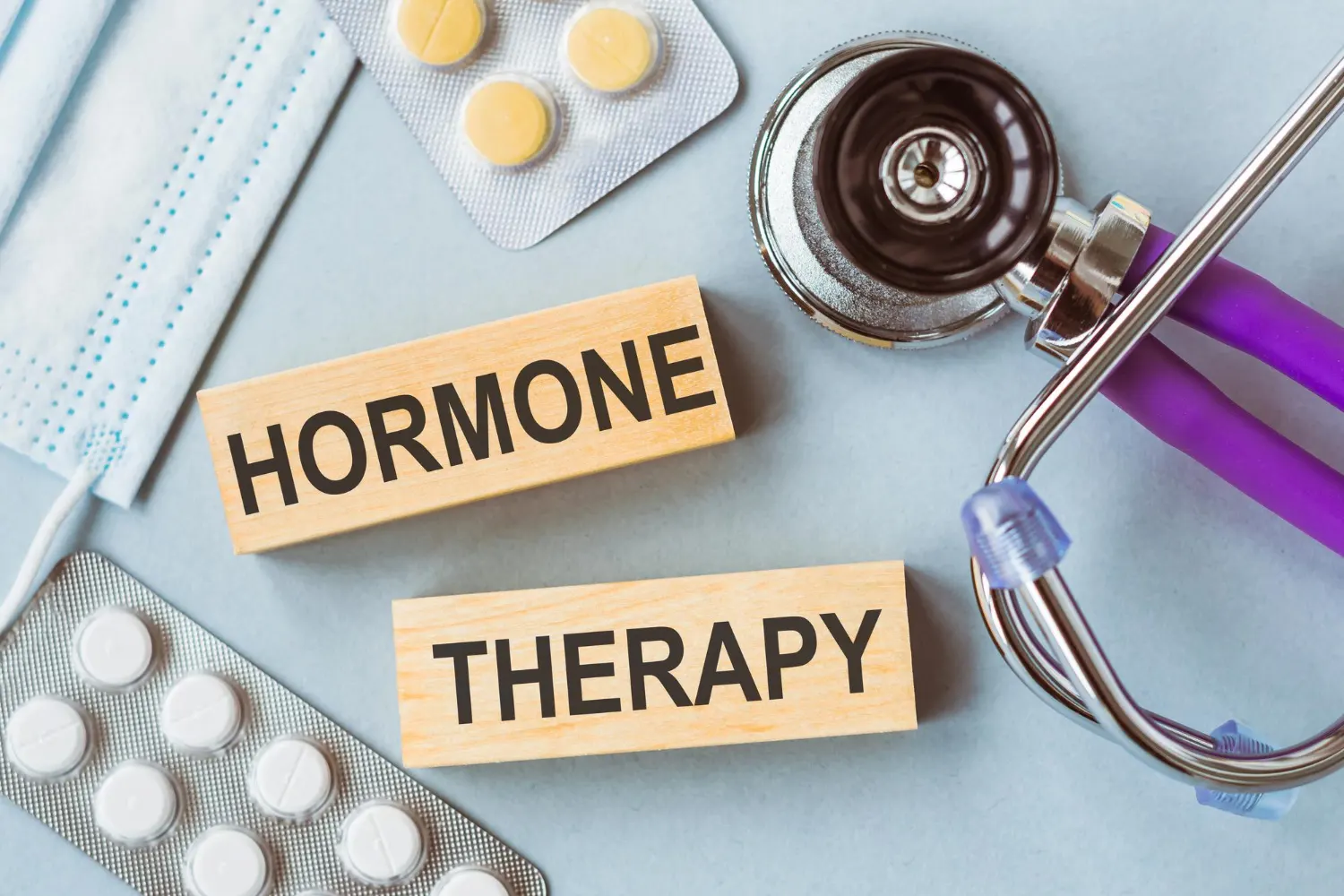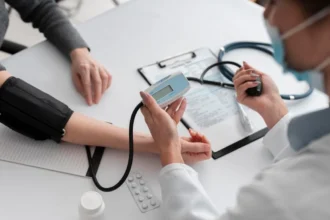Menopause is a natural phase in every woman’s life, often accompanied by symptoms like hot flashes, night sweats, mood swings, and decreased bone density. For many women, managing these changes can be challenging. FDA menopause hormone therapy offers a scientifically validated approach to easing these symptoms and supporting overall health and vitality.
In this article, we’ll explore FDA-approved hormone therapies, their benefits and risks, recent updates from FDA expert panels, and how women can use hormone replacement therapy (HRT) safely in 2025.
Understanding FDA Menopause Hormone Therapy
FDA menopause hormone therapy refers to hormone treatments approved by the U.S. Food and Drug Administration to help women manage menopause symptoms. Unlike over-the-counter remedies or alternative treatments, FDA-approved therapies undergo rigorous testing for safety, efficacy, and quality.
Hormone therapy works by replenishing estrogen and progesterone levels that naturally decline during menopause. These hormones are vital for regulating body temperature, mood, bone health, and cardiovascular function.
How It Differs from General Hormone Replacement Therapy (HRT)
While HRT is a broad term for hormone-based treatments, FDA-approved therapies meet strict regulatory standards. This ensures that:
- Dosages are safe and effective
- Side effects are well-documented
- Benefits outweigh potential risks for eligible women
FDA oversight provides peace of mind that women receive therapies backed by clinical evidence and expert guidance.
FDA-Approved Medications for Menopause
Some FDA-approved options include:
- Conjugated estrogens
- Estradiol (oral, transdermal, or vaginal forms)
- Progesterone or progestin supplements
- Combination therapies
These medications are prescribed based on individual health profiles, age, and specific menopause symptoms.
Types of FDA-Approved Hormone Replacement Therapy
Hormone therapy comes in several forms, each targeting different needs. Understanding these can help women and healthcare providers select the most suitable option.
Estrogen Therapy
Estrogen therapy is often the first-line treatment for women experiencing moderate to severe hot flashes and night sweats. It helps:
- Reduce frequency and intensity of hot flashes
- Improve sleep quality
- Maintain vaginal health
Progesterone Therapy
Progesterone is typically prescribed alongside estrogen for women with an intact uterus. It helps prevent endometrial hyperplasia, a condition that can increase the risk of uterine cancer.
Combination Therapy (Estrogen + Progesterone)
Combination therapy is suitable for women who need symptom relief but have not undergone hysterectomy. This approach balances estrogen’s benefits with progesterone’s protective effect on the uterus.
Bioidentical Hormones
Bioidentical hormones mimic the body’s natural estrogen and progesterone structure. FDA-approved bioidentical options ensure standardization, quality control, and clinical efficacy.
| Therapy Type | Common Form | Key Benefits |
|---|---|---|
| Estrogen Therapy | Oral, Patch, Cream | Reduces hot flashes, improves vaginal health |
| Progesterone Therapy | Oral, Gel | Protects uterine lining, balances estrogen |
| Combination Therapy | Oral, Patch | Comprehensive symptom relief, uterus protection |
| Bioidentical Hormones | Oral, Cream, Patch | Mimics natural hormones, individualized dosing |
Benefits of Menopause Hormone Therapy
FDA menopause hormone therapy offers multiple health and quality-of-life benefits for women during and after menopause.
Relief from Hot Flashes and Night Sweats
Hot flashes are one of the most disruptive symptoms of menopause. Estrogen therapy significantly reduces both the intensity and frequency of hot flashes and night sweats.
Prevention of Osteoporosis
Declining estrogen levels contribute to bone loss. Hormone therapy can help maintain bone density and reduce fracture risk, especially when initiated early in menopause.
Mood and Cognitive Support
Some studies suggest that estrogen therapy can improve mood, memory, and overall cognitive function in menopausal women.
Supporting Overall Vitality and Quality of Life
By alleviating physical discomfort and stabilizing hormone levels, FDA-approved HRT can enhance energy, sleep quality, and sexual health.
Risks and FDA Black Box Warnings
While FDA-approved hormone therapy is effective, it carries potential risks. The FDA mandates a black box warning for all systemic estrogen therapies to ensure women are fully informed.
Understanding the Black Box Warning
The black box warning highlights risks associated with hormone therapy, including:
- Increased risk of heart disease and stroke
- Higher likelihood of blood clots
- Elevated risk of breast cancer with long-term use
Assessing Suitability
Healthcare providers evaluate individual risk factors before prescribing HRT. Factors considered include age, family history, cardiovascular health, and prior cancer history.
Minimizing Risks
- Use the lowest effective dose for the shortest possible duration
- Consider non-oral routes (patches, gels) to reduce clot risk
- Regular monitoring through blood tests and checkups
FDA Panels and Expert Guidance (2025 Updates)
The FDA menopause panel 2025 provides updated guidance on hormone therapy use, ensuring that women receive safe, evidence-based care.
Overview of FDA Expert Panel Recommendations
- Individualized therapy based on age and symptom severity
- Preference for short-term use of systemic hormones
- Encouragement of lifestyle interventions alongside therapy (diet, exercise, stress management)
Updates on Bioidentical Hormones
The FDA continues to approve bioidentical hormone formulations that meet safety, purity, and efficacy standards, offering women personalized options with regulatory assurance.
Who Should Consider Hormone Replacement Therapy
Signs You Might Need HRT
Women may consider HRT if they experience:
- Severe hot flashes or night sweats affecting daily life
- Vaginal dryness or discomfort
- Mood swings or depression linked to hormonal changes
- Increased risk of osteoporosis
Healthcare Evaluation
Before starting therapy, women undergo:
- Comprehensive medical history review
- Assessment of cardiovascular and cancer risks
- Discussion of personal goals and quality-of-life considerations
Considerations for Different Age Groups
- Women under 60 or within 10 years of menopause onset often benefit most
- Older women or those with higher health risks require careful evaluation
How to Use FDA Menopause Hormone Therapy Safely
Dosage Guidelines
- Start with the lowest effective dose
- Adjust based on symptom relief and side effects
- Prefer short-term systemic therapy when possible
Monitoring and Follow-Up Care
- Regular blood pressure and cholesterol checks
- Bone density scans
- Breast and pelvic examinations
Lifestyle Factors That Support Therapy Effectiveness
- Balanced diet rich in calcium and vitamin D
- Regular weight-bearing exercise
- Stress management and quality sleep
Frequently Asked Questions (FAQ)
Q1: What medication is FDA approved for menopause?
FDA-approved medications include estrogen (oral, patch, or cream), progesterone, combination therapies, and certain bioidentical hormones.
Q2: What is the FDA menopause panel 2025?
The FDA menopause panel 2025 provides updated guidance on safe and effective use of hormone therapy for women, focusing on individualized care and risk management.
Q3: What are FDA-approved forms of hormone therapy?
Approved forms include oral tablets, transdermal patches, gels, creams, and vaginal rings for both systemic and local therapy.
Q4: What is the black box warning on hormone therapy?
The black box warning alerts women to potential risks like heart disease, stroke, blood clots, and breast cancer with long-term hormone use.
Q5: What are the signs that you need hormone replacement therapy?
Severe menopausal symptoms affecting quality of life, vaginal discomfort, mood swings, and risk of osteoporosis are indicators for considering HRT.
Conclusion
FDA menopause hormone therapy provides scientifically validated ways for women to manage menopause symptoms, maintain bone health, improve mood, and enhance overall vitality. While benefits are significant, therapy must be tailored to each woman’s health profile, considering potential risks highlighted by FDA black box warnings.
Consulting with healthcare providers ensures safe, effective use of hormone therapy, helping women embrace menopause with confidence and improved quality of life.
For more health insights, check out How is Gloria Copeland’s Health? for wellness inspiration and updates.




